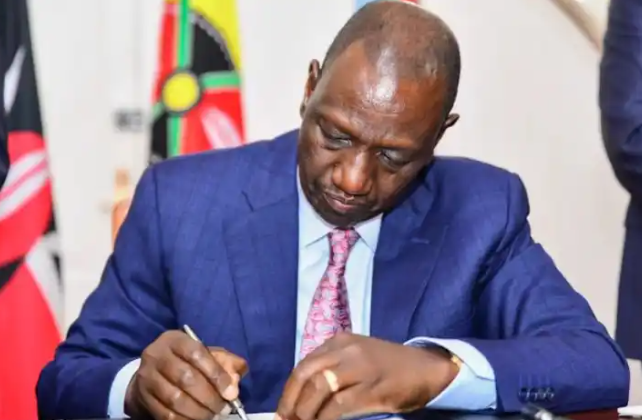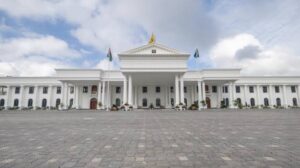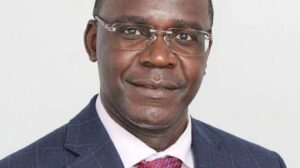AMACO, an insurance company associated with President William Ruto, has secured significant roles and responsibilities.
AMACO is now at the helm of the Strategic Health Insurance Fund (SHIF), poised to absorb SK Macharia’s Directline Assurance clients, and is set to play a pivotal role in collecting motor vehicle taxes on behalf of the government.
This development marks a significant consolidation of influence and resources under Ruto’s umbrella, illustrating a potential shift in the country’s economic power dynamics.
The assignment of AMACO to oversee the SHIF signals a major responsibility.
The SHIF is a critical component of Kenya’s healthcare system, designed to provide affordable health insurance to millions of Kenyans.
AMACO’s leadership in this area places it at the center of national healthcare delivery, directly impacting the well-being of countless citizens.
This role not only bolsters AMACO’s position in the insurance market but also enhances its influence in shaping healthcare policies and practices in Kenya.
In addition to its role with the SHIF, AMACO is preparing to take over the clientele of Directline Assurance, a prominent player in the motor vehicle insurance market owned by media mogul SK Macharia.
This acquisition would significantly expand AMACO’s market share, fortifying its presence in the insurance sector.
Directline Assurance has long been a staple in providing motor insurance, and its integration into AMACO’s portfolio is a strategic move that could consolidate Ruto’s control over a substantial segment of the insurance industry.
Perhaps the most notable development is AMACO’s readiness to collect motor vehicle taxes on behalf of the government.
This function traditionally falls under government agencies, and its delegation to a private entity is unprecedented.
This shift could streamline tax collection processes, improve efficiency, and potentially increase revenue.
However, it also raises questions about the concentration of power and the implications for transparency and accountability in tax administration.
These developments are particularly intriguing given Ruto’s political narrative.
Throughout his career, Ruto has campaigned vigorously against the entrenched dynasties in Kenyan politics, positioning himself as a champion of the common man against the established elites.
His rise to power was largely built on this anti-dynastic rhetoric, appealing to voters frustrated with the perceived concentration of wealth and influence in the hands of a few families.
Yet, the consolidation of such significant economic roles under entities associated with Ruto suggests a paradox.
The very campaign against dynasties that propelled him to the presidency now appears to be paving the way for Ruto to establish a new form of dynasty.
By positioning AMACO at the center of key financial and administrative functions, Ruto is effectively expanding his influence, raising questions about the true nature of his anti-dynastic stance.
The ascent of AMACO under Ruto’s influence signifies a profound shift in Kenya’s economic landscape.
With responsibilities spanning health insurance, motor vehicle insurance, and tax collection, AMACO is becoming a powerhouse within the country’s financial system.
While these moves could enhance efficiency and service delivery, they also underscore a significant centralization of power.
The implications of this concentration of influence will undoubtedly be a focal point of public discourse, challenging the narrative of his anti-dynasty campaign and prompting reflections on the nature of power and governance in Kenya.





















Add Comment